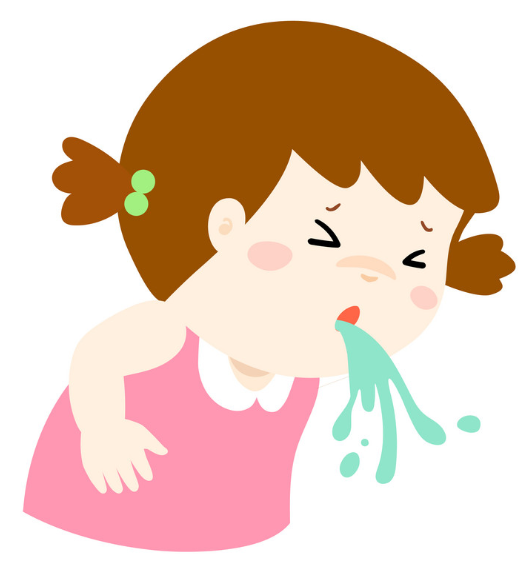Cyclic Vomiting Syndrome (CVS)
The symptoms of cyclic vomiting syndrome may include recurrent episodes of severe nausea, heavy gagging or retching, and vomiting. Drooling or spitting, extreme thirst, not wanting to talk, and low-grade fever may be additional symptoms. Like abdominal migraines, you may also see a lack of appetite, pain in the abdomen, pale skin, severe fatigue, and sensitivity to light.
Cyclic vomiting syndrome is similar to abdominal migraines in several ways.
1) They both occur more often in children, and in children with parents who suffer from migraine headaches.
2) They both follow a pattern; onset at the same time of day (usually morning for CVS), last the same length of time and have the same intensity each time.
3) They both are usually outgrown with some changing to migraine headaches.
3) They both seem to have common triggers: stress, excitement, certain foods, and motion sickness. Cyclic vomiting syndrome can also be triggered by colds or allergies, physical exhaustion, overeating or prolonged fasting and menstrual periods.
It is important to pay attention to potential triggers as prevention plays a major role in treating CVS. Avoiding or eliminating these triggers can reduce the frequency of episodes, such as cutting out certain foods or drinks. Getting enough sleep and eating smaller meals with low-fat snacks daily may also help. If excitement or anxiety is a trigger for your child, downplaying the importance of upcoming events may also help reduce episodes.
There are no specific medications just for cyclic vomiting syndrome. Prevention is key, but like abdominal migraines, tricyclic antidepressants and migraine medications may also be effective in preventing or reducing episodes.
Because the risk of dehydration is high, your child may need to be hospitalized. Medications for nausea and vomiting will be given and IV fluids will be used to keep your child hydrated. Daily nutrition may need to be provided through the IV line as injury to the esophagus may be a complication from repetitive vomiting. It is also important for your child to rinse their mouth well after vomiting to reduce the risk for tooth decay from the acid in their stomach that comes up.
Call a doctor if you see blood in your child’s vomit. And as mentioned, vomiting can lead to severe dehydration which can be life-threatening. Call a doctor if your child has: excess thirst or dry mouth, reduced urine, dry skin, sunken eyes or cheeks, no tears when crying or lethargy (lack of energy, fatigue).
At GI for Kids, our team of providers are trained in a number of sub-specialties to address the unique medical needs of each patient. Call our office today to set up an appointment.
Written by: Mary Ellen McNeal, BSN, RN















